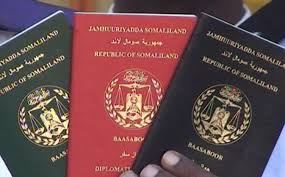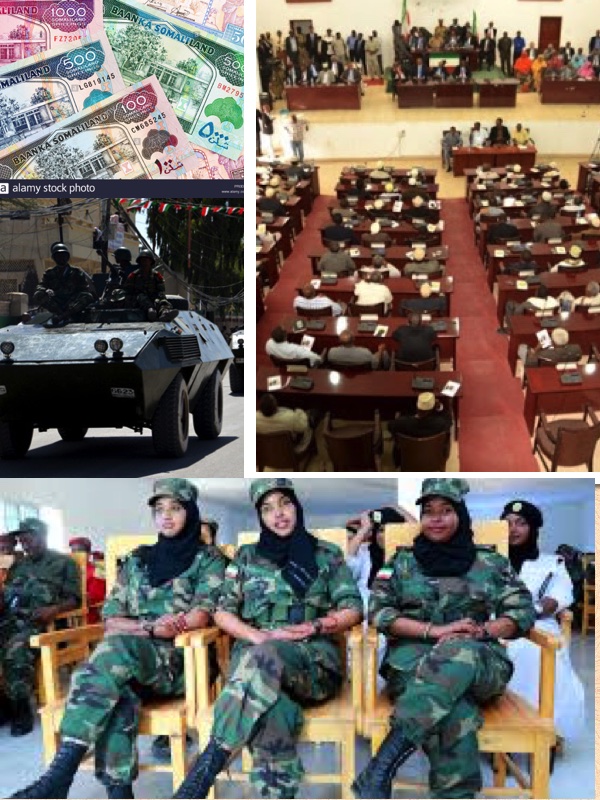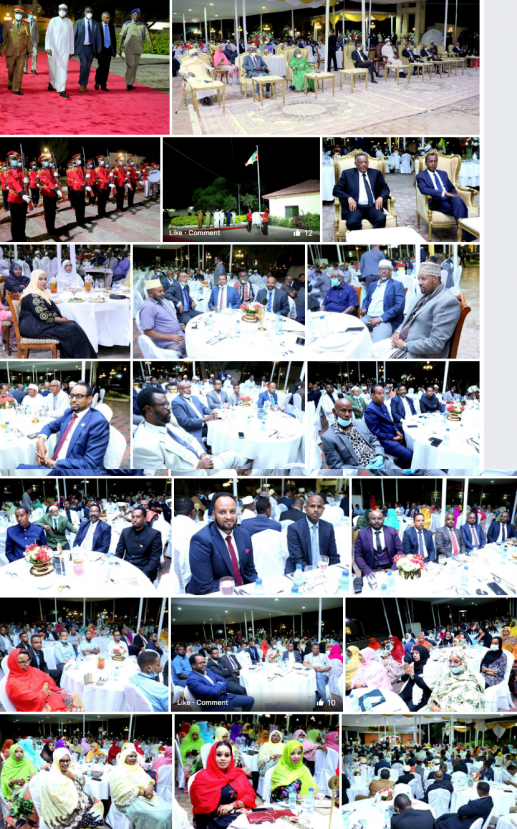His Excellency the President of the Republic of Somaliland, Musa Bihi Abdi, speaking to the nation at the 60th-anniversary occasion held at the President on Thursday, clarified how movement and integration between Federal Somalia and Somalia would look like in the future.
“institutions, organizations, groups…going on a visit to Somalia for, for instance, a sports event or meeting, will travel on Somaliland passports and would be officially representing their homeland – the Somaliland Republic,” President Bihi said.
The president emphasized that any agreement between the two countries would only rest on an understanding reached on an equal footing.
“The talks between the two sides started in 2012 as two countries, and they will continue and/or end as two countries. Nothing less can be expected. Nothing less is acceptable to Somaliland,” he said allaying surfacing concerns.
Following a meeting between two ministerial-level, technical committees representing the two sides in Djibouti from the 14th to the 17th of June, a point in a communiqué which the mediating Ministry of Foreign Affairs released on the 22nd stirred a ruckus in Somaliland.
“The two sides also agreed not to impede non-political social engagement (cultural, academic, sports and trade) in order to promote peace and dialogue between Somalia and Somaliland,” the Connuniqué, which, incidentally, did not produce any accompanying document signed by the principals, stated.
Politicians, academicians, traditional leaders, poets and almost 80% of the general Somaliland public immediately rejected the wording interpreting as a tricky point camouflaging a union deal struck under the table by the leaders of Somaliland with their Somalia counterparts.
Minister Saeed Sulub Mohamed, a member of the Somaliland team at the talks, also, dismissed the proviso, stating that this particular point was at the head of contentious areas that the two sides never fully settled between them.
“A free, unfettered movement between the two sides is not possible, and we made that clear at the meeting time and again. Two countries are negotiating collaboration terms. It is not as if one country wishes to impose its will on the other as is the case with a Somalia on this point aiming to show everybody that there was really nothing to impede union between the two countries once Mogadishu gets its way in Somaliland,” he said.
Minister agreed with Dr Edna Adan that Somaliland had no problem with people seeking medical assistance, going to universities, doing business, settling or visiting friends and relatives in Somaliland as has been the case since 1991.
Lending credibility to Somaliland concerns over Somalia motives on the future status between the two sides, Villa Somalia opened its purse wide to a celebration of 26 June and its 60th anniversary. It held a lavishly organized occasion in Mogadishu and elsewhere in the capitals of its federal states, such as Beledwein. 
It had no cause to if not to project the message that Somaliland was part of territories under Mogadishu care – which it was not either before 1960 or after 1991. Somaliland gained independence from Britain on 26 June 1960, Somalia got out from under Italy and a UN trusteeship on 1 July 1960 – which made to coincide with a union which failed because of an absence of a signed, legally processed ‘partnership’ code.
Somalia celebrating 26 June was as perplexing as it was confusing to Somalis as to was to foreigners – to say the least.
https://twitter.com/thebhlub/status/1276481177256370176?s=20
The Republic of Somaliland was built, from 1991 to date, from the ashes and rubble of widespread physical, intellectual, psychological. life and property destruction meted on it by the Somalia-dominated, military-led of General Siyad Barre which focused its wrath on central and eastern Somaliland regions right from the late ’80s to until the SNM and other freedom fighting forces ousted it in late January 1991.
From the rubble rose a modern state intact with all the branches and paraphernalia of a fully democratic nation, complete with one-person, one vote elections, passport, coat of arms, flag, currency, army, national anthem, and executive, judiciary and legislative branches some of which, incidentally, Somalia has yet to attain or implement.




























